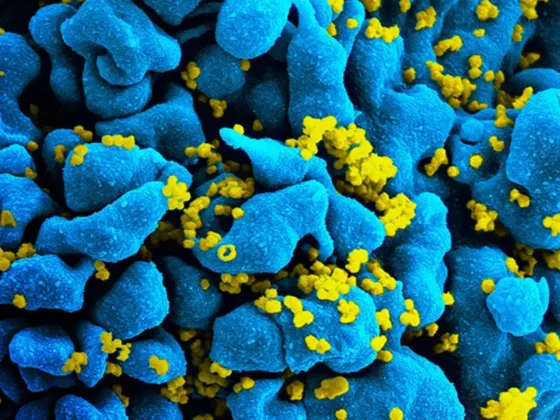Scientists have discovered a microbe that completely protects mosquitoes from being infected with malaria.
The team in Kenya and the UK say the finding has “enormous potential” to control the disease.
Malaria is spread by the bite of infected mosquitoes, so protecting them could in turn protect people.
The researchers are now investigating whether they can release infected mosquitoes into the wild, or use spores to suppress the disease.
What is this microbe?
The malaria-blocking bug, Microsporidia MB, was discovered by studying mosquitoes on the shores of Lake Victoria in Kenya. It lives in the gut and genitals of the insects.
The researchers could not find a single mosquito carrying the Microsporidia that was harbouring the malaria parasite. And lab experiments, published in Nature Communications, confirmed the microbe gave the mosquitoes protection.
Microsporidias are fungi, or at least closely related to them, and most are parasites.
However, this new species may be beneficial to the mosquito and was naturally found in around 5% of the insects studied.
A report mentions Dr Jeremy Herren, from the International Centre of Insect Physiology and Ecology (icipe) in Kenya, as saying that the blockage of malaria by the microbe is 100% and ‘very severe’.
It is being considered a big breakthrough.”The data we have so far suggest it is 100% blockage, it’s a very severe blockage of malaria,” Dr Jeremy Herren, from the International Centre of Insect Physiology and Ecology (icipe) in Kenya told the BBC.
He added: “It will come as a quite a surprise. I think people will find that a real big breakthrough.”
More than 400,000 people are killed by malaria each year, most of them children under the age of five.
While huge progress has been made through the use of bed nets and spraying homes with insecticide, this has stalled in recent years. It is widely agreed new tools are needed to tackle malaria.
How does the microbe stop malaria?
The fine details still need to be worked out.But Microsporidia MB could be priming the mosquito’s immune system, so it is more able to fight off infections.Or the presence of the microbe in the insect could be having a profound effect on the mosquito’s metabolism, making it inhospitable for the malaria parasite.
Microsporidia MB infections appear to be life-long. If anything, the experiments show they become more intense, so the malaria-blocking effect would be long-lasting.
Malaria kills more than 400,000 people each year and most of them are children under five.
Around 250,000 of these deaths occur in Africa. The disease is caused by a parasite called Plasmodium, of which five cause malaria.
When an infected mosquito bites a person, the parasite enters their bloodstream.
Symptoms include a fever, feeling hot and shivery, headaches, vomiting and muscle pain.
However, the latest breakthrough could provide a powerful new weapon in a fight against the disease.
Lab experiments confirmed that the microsporidia microbe gave the Kenyan mosquitos protection against malaria.
Not a single mosquito which was carrying the bug was found to be harbouring the malaria parasite.
Whilst most microsporidias – which are fungi or closely related to them – are parasites, this newly-discovered species may benefit the mosquito
It was found naturally in one in 20 of the insects studied.Encouragingly, the malaria-blocking effect would also be long-lasting because the Microsporidia MB infections appear to be life-long in the mosquitoes.
However, at least 40 per cent of mosquitoes in any area would need to be infected with the bug to significantly combat malaria.











